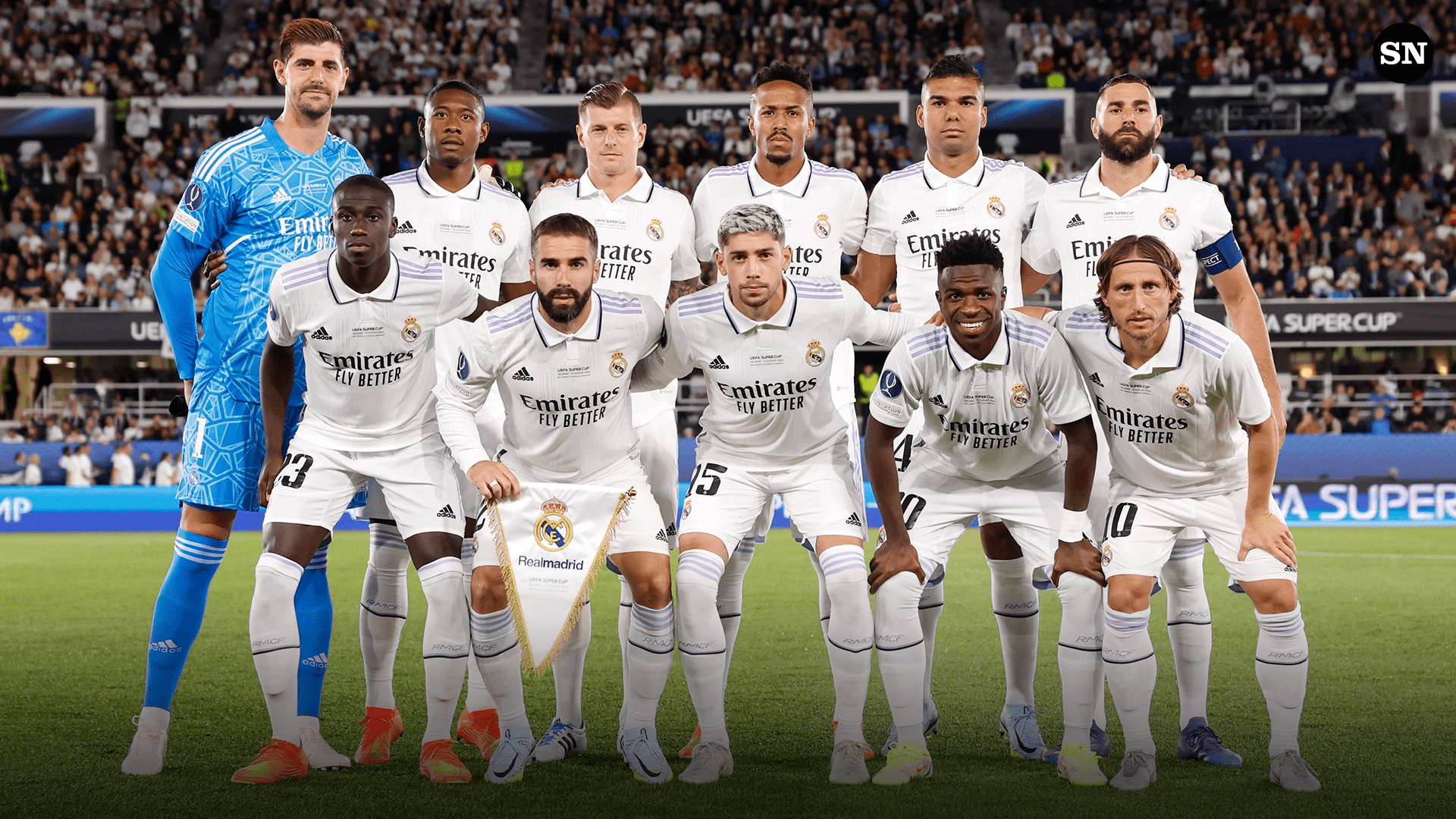What does it truly mean for something to be "real" these days, especially when so much of our daily life happens online? We often hear about things being genuine, or true, or having an actual existence, rather than just being something made up or copied. It’s about whether something is what it says it is, a bit like telling a real diamond from a fake one. This idea of what’s true versus what’s not becomes, you know, a pretty big deal when we’re spending time in digital spaces, where things can sometimes seem a little blurry.
When we talk about the idea of "the real Camila of" any online situation, we are really asking about the authentic version, the honest experience, or the actual thing itself. It’s about looking past what might just appear to be true and figuring out what truly holds up. This quest for what is honest and reliable touches on so many parts of our internet use, from the communities we join to the entertainment we watch and even the information we trust. It’s a bit like trying to find the genuine article in a very, very big marketplace.
This article will explore what "real" means in various online settings, drawing on different ideas about authenticity and genuine experiences. We will look at how to tell if something is truly what it seems, whether it’s a community offering honest feedback, a streaming site providing legitimate content, or even understanding the actual worth of a service. It's about getting to the heart of what’s true, or what you might call the real Camila, in our connected world.
Table of Contents
- Exploring the "Real Camila" - A Concept, Not a Biography
- What Does "Real" Even Mean Online?
- Distinguishing the Real Camila of Communities and Connections
- The Real Camila of Digital Entertainment - Clones and Copies
- Beyond the Screen - Understanding the Real Camila of Value
- Safeguarding Your Online Real Camila
- The Evolving Definition of the Real Camila Online
- The Real Camila of User Contributions and Opinions
- Finding Your Own Real Camila Online
Exploring the "Real Camila" - A Concept, Not a Biography
You might be wondering about a specific person named Camila, especially if you came here looking for details on a celebrity or public figure. To be honest, that's not quite what we are talking about today. The phrase "real Camila of" here isn't pointing to a particular individual with a life story, but rather it's a way to talk about the genuine, the true, or the authentic version of something in the vast world of online content and communities. Our source material, you see, talks a lot about what "real" means—things that actually exist, things that are true, not just pretend or fake. It discusses how to tell if something is genuine, like an actual object versus a copy, or a fact versus something made up. So, when we mention "the real Camila," we are really asking: what is the true nature of these online experiences? How do we find what is truly authentic in a place full of copies and opinions? This discussion is more about the essence of truth in digital spaces, not about a person's life details.
Because of this, you won't find a traditional biography table here. Our focus is on the deeper meaning of "real" as it applies to the many online situations described in our source text—from community discussions to streaming services and even online marketplaces. It's about figuring out what is honest and reliable when so much of what we see and hear online can be, you know, a bit unclear or not quite what it seems. We're looking at the idea of "realness" itself, how it shows up in different parts of the internet, and how we can learn to spot it. So, think of "Camila" as a kind of stand-in for that genuine article, that honest experience we all hope to find when we are spending time online.
What Does "Real" Even Mean Online?
The idea of something being "real" carries a lot of weight. Typically, it means something has an objective, independent existence. It's actual, it's true, and it's certainly not imaginary. When we say something is real, we often mean it's genuine, the opposite of something counterfeit or fake. This applies to objects, people, and experiences. For instance, a real piece of art is not a copy, and a real feeling is not just put on. This concept, frankly, becomes a bit more complicated when we consider the internet, where things can be easily replicated or altered. What truly exists when everything is just, you know, pixels on a screen?
The Search for the Real Camila of Authenticity
In the online world, the search for what is truly authentic is a pretty big deal. We are constantly trying to figure out if what we see or read is legitimate. Is that news story actually factual, or is it made up? Is that online profile really a person, or is it a bot? This quest for the real Camila of authenticity means we are always trying to determine if something is what it claims to be. It’s about seeing past the surface and getting to the genuine core. For example, when you read a review, you want to know if it's from a real person who actually used the product, not just someone paid to write something good. This applies to so much of what we encounter, from opinions shared in groups to the very services we use.
Distinguishing the Real Camila of Communities and Connections
Online communities offer places for people to connect, share thoughts, and get feedback. Some groups, like those mentioned in our source text, aim to provide "honest opinions" and help people present themselves well publicly. Other communities focus on specific interests, such as game repacks or even educators sharing their "wild side" with proper verification. The question arises, though: how do we know if these connections are truly genuine? Are the people we interact with being honest, or are they just putting on a show? It’s a bit of a challenge, as a matter of fact, to figure out the true nature of these digital interactions.
Are These Spaces Truly Genuine?
When you join an online group, you hope to find real people and real conversations. For instance, a community dedicated to helping people get "passable in the public eye" relies on members giving honest feedback. But how do you know that the feedback you are getting is, you know, truly unbiased and helpful? Similarly, a place for educators to "show off their wild side" asks for verification, which helps establish some level of authenticity. But even with rules, there’s always a slight question about how genuine the interactions truly are. It’s about finding the real Camila of community spirit, where people are actually themselves and share openly. This means looking for signs of genuine engagement and a lack of hidden motives, which can be, well, sometimes a little tricky.
The Real Camila of Digital Entertainment - Clones and Copies
The world of online entertainment is full of options, but also, you know, a lot of fakes. Our source text points out how official streaming sites sometimes get shut down, leading to many "clones" or mirror sites popping up. These copies might look very similar to the original, but they often carry risks, like trying to bait users into getting malware. This is especially true for popular content, like anime streaming sites or even discussions around popular TV shows like "Real Housewives." It makes you wonder, actually, how you can tell the difference between the legitimate source and a potentially harmful imitation.
How Can We Spot the Real Camila of Streaming?
Spotting the genuine article when it comes to online streaming or content sites can be quite a puzzle. For example, after an "official" site closes, many mirror sites appear. While some might offer the content you are looking for, others could be traps. They might look identical, but they could be designed to install unwanted software or steal your information. It's about finding the real Camila of safe and legitimate entertainment. This means being very, very careful about where you click and what you download. Checking for secure website connections, looking for reviews of new sites, and being cautious of offers that seem too good to be true are all good steps. It's a bit like needing a keen eye to distinguish a genuine painting from a very good forgery, just in the digital space.
Beyond the Screen - Understanding the Real Camila of Value
Sometimes, what seems expensive or complicated can actually offer a lot of worth. Our source text brings up a service like Real-Debrid, which costs about $35 a year. To put that into perspective, it's less than what many people pay for a Netflix subscription. This comparison helps us see the actual value of something, not just its price tag. It makes you think about what you are truly getting for your money, and whether the service provides a real benefit that outweighs its cost. This idea of value goes beyond just entertainment; it applies to any online service or product we consider paying for. It’s about the actual benefit, not just the number on the price tag, you know?
What is the Real Camila of Online Worth?
Figuring out the true worth of an online service or product can be a bit more involved than just looking at the price. The real Camila of online worth isn't just about how much something costs, but what it actually provides in return. For instance, if a service bundles other popular tools or content, like torrent access with a media player, its value might be much higher than its yearly fee suggests. This means looking at the full package, what problems it solves, or what convenience it offers. It's about whether the service genuinely improves your experience or saves you time and effort. Sometimes, a small investment can bring a lot of genuine benefit, making it a very worthwhile choice. So, it's not just about the numbers, but the actual utility you gain, that's the real measure.
Safeguarding Your Online Real Camila
In the online world, keeping yourself safe from fake or harmful content is, well, pretty important. The text warns about "counterfeit websites" and mirror sites that "bait users into getting malware." This highlights the constant need for caution when browsing, downloading, or interacting online. Just because a site looks official or offers something appealing doesn't mean it's legitimate. Protecting your personal information and device security means being able to spot these deceptive sites and avoid them. It's about making sure your online experience remains true and secure, rather than falling prey to something that seems okay but is actually harmful.
How Do We Protect Our Real Camila of Trust?
Protecting our trust online means being smart about where we go and what we click. The real Camila of trust online involves a healthy dose of skepticism. If a site looks suspicious, if the address is slightly off, or if it asks for too much personal information without a clear reason, it’s a sign to be careful. Reports of "multiple counterfeit websites" in communities like FitGirl Repacks show that even well-meaning groups can be targeted by fakes. This means always checking website addresses carefully, using reliable security software, and being wary of unsolicited links or downloads. It's about building a habit of verifying things before you commit, which helps keep your online activities safe and genuine.
The Evolving Definition of the Real Camila Online
The meaning of "real" in the online space isn't fixed; it's always shifting. What was considered genuine yesterday might be questioned today as technology changes and new ways of creating content appear. This means our understanding of what is actual, true, or not imaginary has to keep up. For example, deepfakes and AI-generated content challenge our traditional ideas of what a "real" image or voice is. This ongoing change means we have to continually adjust our mental filters and learn new ways to spot authenticity. It’s a bit like how the value of earnings changes "after the effect of rising" costs; the context alters the meaning.
This ongoing shift means that finding the real Camila online is a continuous process of learning and adaptation. What makes a community "real" might involve different things now than it did ten years ago, perhaps requiring more rigorous verification or clearer rules. Similarly, the genuine nature of an online service might be judged not just by its function but also by its data privacy practices. So, the quest for what is true and authentic is, well, something that never really ends. It just keeps evolving, asking us to be more observant and thoughtful about our digital surroundings.
The Real Camila of User Contributions and Opinions
Many online spaces thrive on user contributions, whether it’s sharing opinions or requesting dares. Communities that ask for "honest opinions" are built on the idea that members will provide genuine feedback to help others. Similarly, groups that welcome "dares request" are looking for creative ideas from their members, hoping these contributions will lead to "a lot of engagement." The success of these communities really depends on the authenticity of the interactions. It’s about whether people are truly participating and being themselves, rather than just going through the motions or trying to manipulate things.
The real Camila of user contributions means that the content shared comes from a


